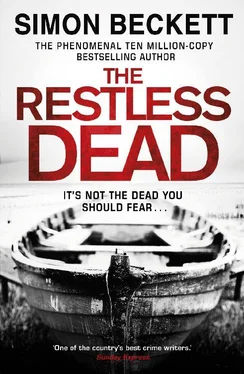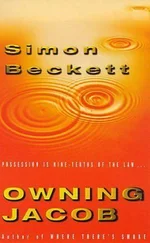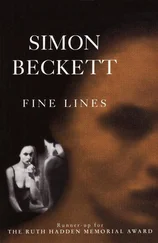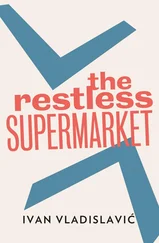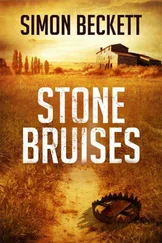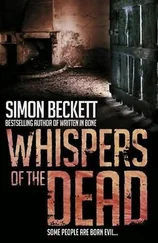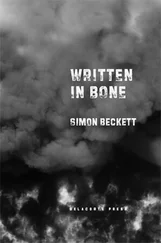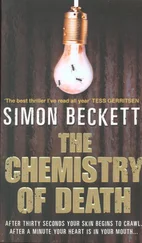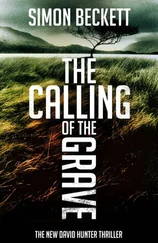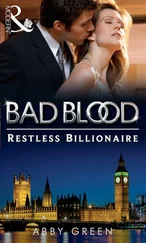‘He’s never been any different.’
I looked up, not sure what that was supposed to mean. The driver took another pull on the cigarette.
‘The old man’s son,’ he said, smiling through the smoke. ‘Always was a wanker. Some people don’t know when they’re well off.’
I was saved from having to answer. I nodded towards the house as I wadded up the coveralls and dumped them in a bin.
‘I think your boss has finished.’
His head snapped round as Sir Stephen and his lawyers appeared from around the front of the house. Evidently the discussion with Clarke had been a short one. Without seeming to hurry, the driver came to attention, the cigarette vanishing as though by sleight of hand.
Not wanting anything more to do with any of them, I turned and walked away.
I worked at the mortuary until after six. I would have stayed later but I was mindful of Trask’s dinner invitation and wanted to get back to the boathouse to change. There wasn’t much more I could have done by then anyway.
I’d spent the afternoon taking the rest of the cleaned bones of the estuary body out of the stew formed by the detergent, rinsing them off before setting them out in their correct position on a table to air dry. Cleaned of any soft tissue, the individual bones were creamy-white and smooth, from the elegant curve of the ribs to the intricate discs of the vertebrae. This was a human being reduced to its most basic mechanical components, biological sculptures that gave no sense of the person they’d once been. It was a final indignity imposed on what had not so long ago been a living individual. But it was a necessary one, and to my mind far less of an affront than the act that had ended this man’s life.
With luck it would tell us more about who he was.
Reassembling a skeleton becomes easier with practice. Essentially, it’s repeating variations on the same jigsaw puzzle, where the pieces are familiar yet different each time. With the obvious exception of the cranium, the skeleton was in good condition. Not only was there an absence of any other violent trauma, but there were no old injuries, deformations or signs of degradation due to disease or age. The most remarkable thing about it was how unremarkable it was.
If time wasn’t such an issue I’d have waited until the skeleton was fully reassembled before examining it. I would do that again anyway before I wrote my report. But I’d been able to get a good idea of the condition and characteristics of the bones as I’d been handling them, and a picture was already beginning to form. With the quiet hum of the fume hood as accompaniment, I let the lingering anger over Sir Stephen slough away and lost myself in what I was doing. It was straightforward, repetitive work, the sort of thing I’d done so many times before that it had acquired a meditative quality. When an APT came to tell me Lundy was on the phone, I was surprised by how quickly the afternoon had gone.
Leaving the chemical and cooked-meat smell of the examination room, I went to take the call. Lundy began by apologizing.
‘I shouldn’t have put you in that position with Sir Stephen,’ he said. ‘I thought it might help to hear it from the horse’s mouth, but I should have realized he’d take aim at you as well.’
‘I’ve had worse,’ I told him. ‘I was just surprised he’d bothered to do a background check.’
‘You don’t get to be where he is by leaving anything to chance. I dare say he knows what we all have for breakfast. Including the chief.’
‘How did that go?’ I asked, remembering Clarke’s expression as she’d gone to speak to Sir Stephen.
‘Oh, I’d call it a draw. Diplomacy isn’t her strong point, but not even Sir Stephen’s lawyers can argue away hard evidence.’
I’d had time to think about that as I’d driven back to the mortuary from Leo Villiers’ house. However I looked at it, Sir Stephen’s entire attitude seemed out of kilter. Not so much the lack of emotion: people displayed grief in different ways, not all of them publicly. But his insistence that his son was dead seemed perverse. I’d known people who were in denial, who refused to accept a loved one’s death, but never the other way around.
‘Why do you think he’s so insistent it’s his son’s body? He must realize the DNA results will prove it one way or the other, so what’s the point?’
I heard Lundy let out a long breath. ‘Maybe it’s wishful thinking. He knows full well that if the body isn’t Leo’s, that puts his son in the frame for murder. This isn’t like it was with Emma Derby: this time we’ve a dead victim and evidence pointing directly to Leo Villiers. That’s not going to do his reputation any favours at all. Could be Sir Stephen would rather have a dead son than a live embarrassment.’
That seemed incomprehensible to me. Whatever Leo Villiers’ flaws, however bad he’d turned out, I couldn’t conceive how a father could feel that way about his own flesh and blood. But remembering the cold, immaculately dressed man I’d met earlier, I thought Lundy could be right.
‘You still there, Dr Hunter?’
‘Yes.’ I brought my mind back to the here and now. ‘Did you find anything else at the house?’
‘Not really. The grave only had the dog in it, and the house might as well have been sterilized. Wardrobes nice and orderly, no dirty laundry left in the basket. The only thing that did emerge was that there might be another shotgun missing as well as the Mowbry.’
‘Might?’
‘We’re still trying to get to the bottom of it. The Mowbry had its own locker in Villiers’ study. His housekeeper said that was open and empty when she reported him missing, so we knew straight away it was gone. But when he had the house remodelled last year he changed the gun room into a gym. The original gun cabinet was moved into the cellar with other stuff he didn’t want.’
‘Villiers had his own gun room?’ I’d thought he hadn’t liked shooting.
‘It came with the house. Sir Stephen was a keen shot by all accounts, used to have shooting parties when the family came to stay here. Except for the Mowbry, all the guns there were old ones dating from then. The cabinet should hold six of them, but there are only five there now. No one we’ve spoken to seems to know when or why one went missing. Or if they do they’re not saying.’
‘Was the cabinet locked?’
I heard a rustling, and when Lundy spoke I could hear him chomping what I guessed was another of his antacids. ‘It was. Far as we know only Leo Villiers and his father had keys. His housekeeper told us there was a spare one in his desk drawer, but that’s still there.’
‘So what do you think happened to the other shotgun?’
‘Good question.’ There was a pause while he chewed and swallowed. ‘Might be nothing, so until it turns up we’ll just have to keep an open mind. Anyway, how’ve you been getting on? Any more clues about who we found in the estuary?’
‘Everything I’ve seen confirms he was in his mid-twenties. No obvious congenital bone defects, very little wear of any kind to the joints. The skeleton’s exceptionally well proportioned, too. Wide clavicles and scapulae, well-formed ribs, narrow hips. I can’t say for certain that he was athletic, but he had a classic V-shaped upper body. And he’d probably have had a good musculature to support the bones.’
‘So he was well built?’
A good bone structure didn’t always translate to a good physique. An individual could have an athlete’s skeleton and still be obese or unfit, and the body we’d brought back from the estuary had been too decomposed and bloated to say either way. But he was only a young man, and therefore more likely to be active. And from the size of the clothes he was wearing he didn’t appear to have been overweight.
Читать дальше
